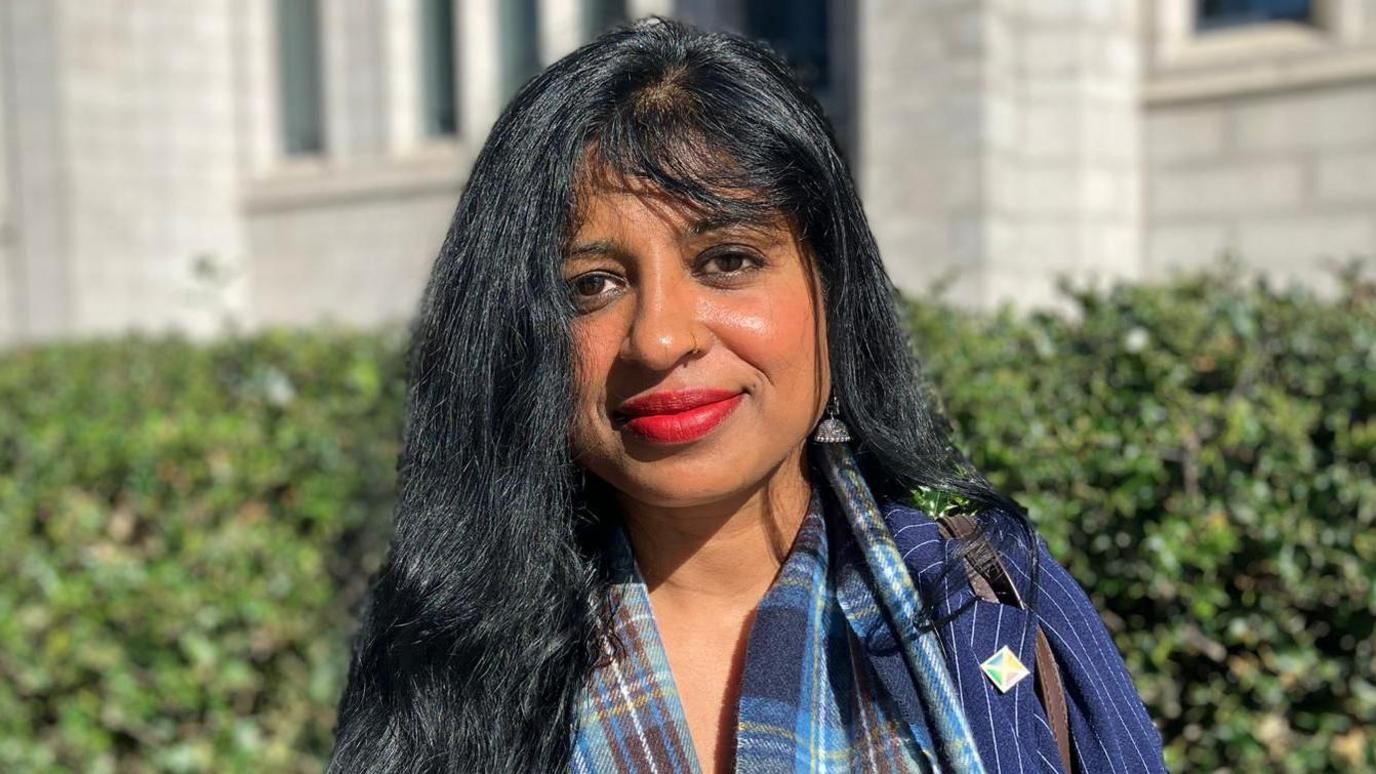Calls to create first Aberdeen Catholic secondary school

Elizabeth Spencer is calling for the creation of a Catholic secondary in Aberdeen
- Published
Aberdeen needs to build a Catholic secondary school to ensure young people of faith are not "left behind", campaigners have said.
Calls for a fresh consultation into the potential new school will be discussed at a full council meeting later this year, after an amendment by opposition councillors on the education committee was voted through earlier.
The local authority held a feasibility study this year in which 1,081 people responded saying they would want to send their school-age children to the potential new school.
Council officials had ruled it unlikely that the school would meet the threshold of 1,000 pupils needed to build a new secondary.
Campaigners believe the questioning in the initial study was not clear and the survey was not publicised in the best way.
An amendment for the new consultation was put forward by Labour councillors and defeated the motion by administration members.
The SNP and Liberal Democrats had called for nothing to be done on the situation.
The most recent census found there were more than 19,000 Roman Catholics living in the city.
Dundee, Edinburgh, Perth, Stirling and Glasgow all have Catholic high schools.
Elizabeth Spencer, who is leading the campaign to build the secondary, told BBC Scotland News that Aberdeen was not meeting the needs of the Catholic population.
She added: "We have a lot of incoming migrants and international students, as well as Catholics already staying here, so the Catholic population has increased.
"People are not seeing the clear need for it, we are being left behind."
'Safe space'
Ms Spencer said Dundee had a similar-sized Catholic population and had 12 denominational primary schools, compared with Aberdeen's three, in addition to a secondary.
"I feel the council officials don't have a clear picture of the situation", she said.
"I have been fighting for this for a while now and I'm hoping they dig deep to find some funding for these people who are marginalised.
"It is important for Catholic teenagers to have a safe space where they can explore and strengthen their faith."
Committee convener Martin Greig - who saw his motion defeated - said he was "proud" that the authority supported Catholic education but warned of a lack of funding.
He added: "We are providing well beyond what is wanted and we have to make very difficult decisions based on our finite resources.
"I think you have to be realistic about what you offer and what you discuss."